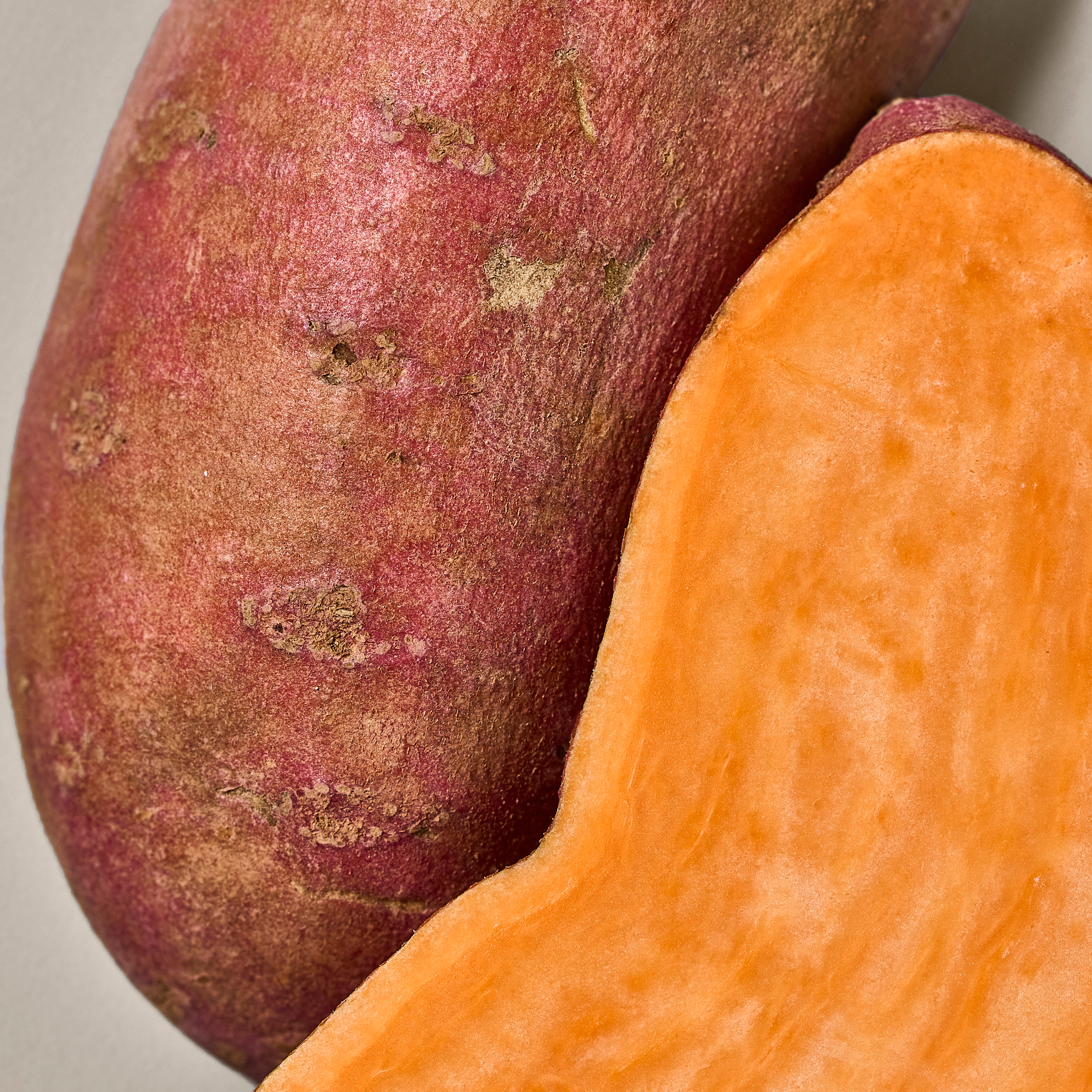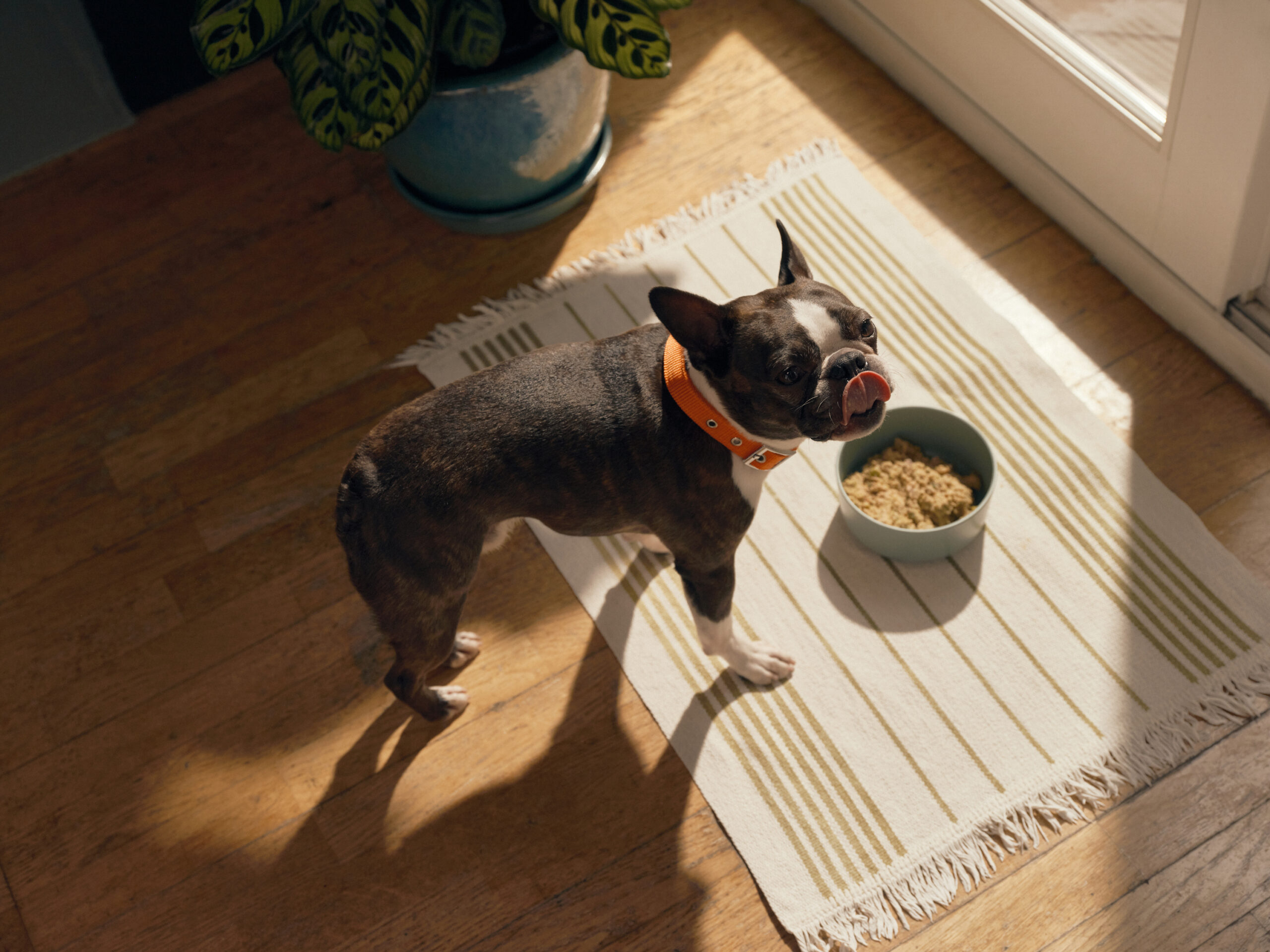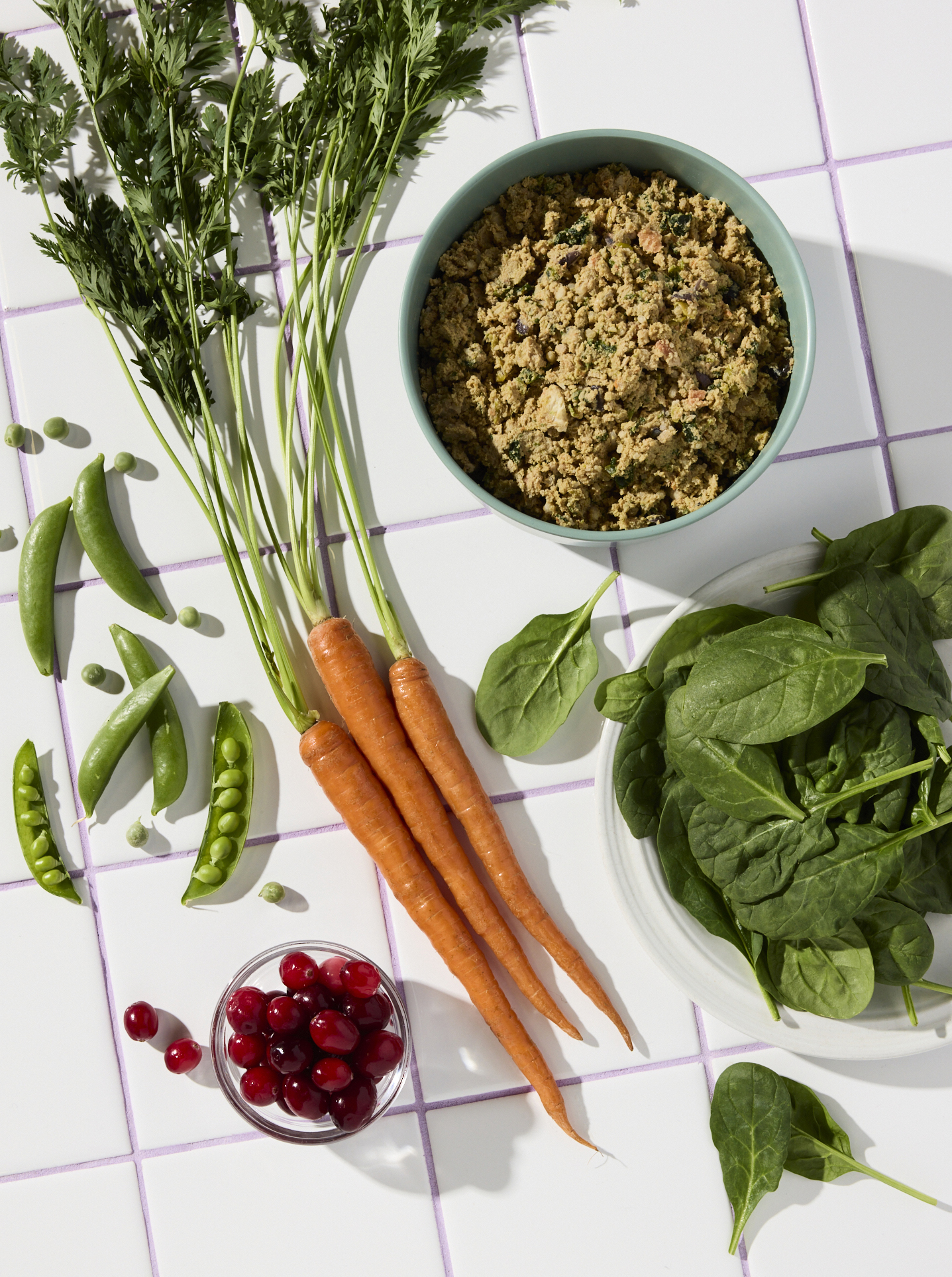Hey Ollie blog readers! We’re offering you an exclusive 60% OFF your starter box! Try now!
As a dog parent, seeing your pup struggle with gas, loose stools, or vomiting can leave you feeling helpless and worried. The good news is that one of the most powerful tools for managing a sensitive stomach is right in your pup’s bowl. Choosing a diet with the right ingredients can soothe their digestive system, improve their comfort, and boost their overall well-being.
Read on to get the scoop on key ingredients that support healthy digestion, what to avoid, and how to choose the best dog food for your pup’s sensitive stomach.
Understanding a Sensitive Stomach in Dogs
A “sensitive stomach” isn’t a specific disease but rather a term for frequent, mild digestive issues. Symptoms can include:
- Excessive gas
- Loose or inconsistent stools
- Occasional vomiting or regurgitation
- Lack of appetite
- Abdominal discomfort or gurgling sounds
These sensitivities can be triggered by food intolerances, allergies, or simply difficulty digesting certain ingredients. While it’s always best to consult your veterinarian to rule out underlying health conditions, adjusting your dog’s diet is often the first and most effective step.
Key Ingredients for Digestive Health
When reading a dog food label, it’s important to know which ingredients are friends to a sensitive gut. Look for formulas built around simple, highly digestible components.
High-Quality, Easily Digestible Proteins
Protein is essential for your dog’s health, but the source matters. Easily digestible proteins provide necessary amino acids without overburdening the digestive system. Many veterinarians recommend limited ingredient diets (LIDs) that feature a single source of animal protein, which can help minimize the risk of a reaction [1].
- Gentle Protein Sources: Look for high-quality, named proteins like chicken, turkey, lamb, and fish [2], [1].
- Novel Proteins: For dogs with suspected allergies to common meats, novel proteins like rabbit or venison can be excellent alternatives [3].
Digestible Carbohydrates for Gentle Energy
Carbohydrates provide a vital source of energy, but complex or low-quality carbs can be hard for a sensitive stomach to process. Opt for gentle, whole-food sources.
- Stomach-Friendly Carbs: Sweet potatoes, brown rice, oatmeal, and quinoa are highly digestible and less likely to cause digestive upset [2], [3].
- Natural Fiber: Ingredients like oatmeal and rice also provide natural prebiotic fibers that help nourish beneficial gut bacteria [3].
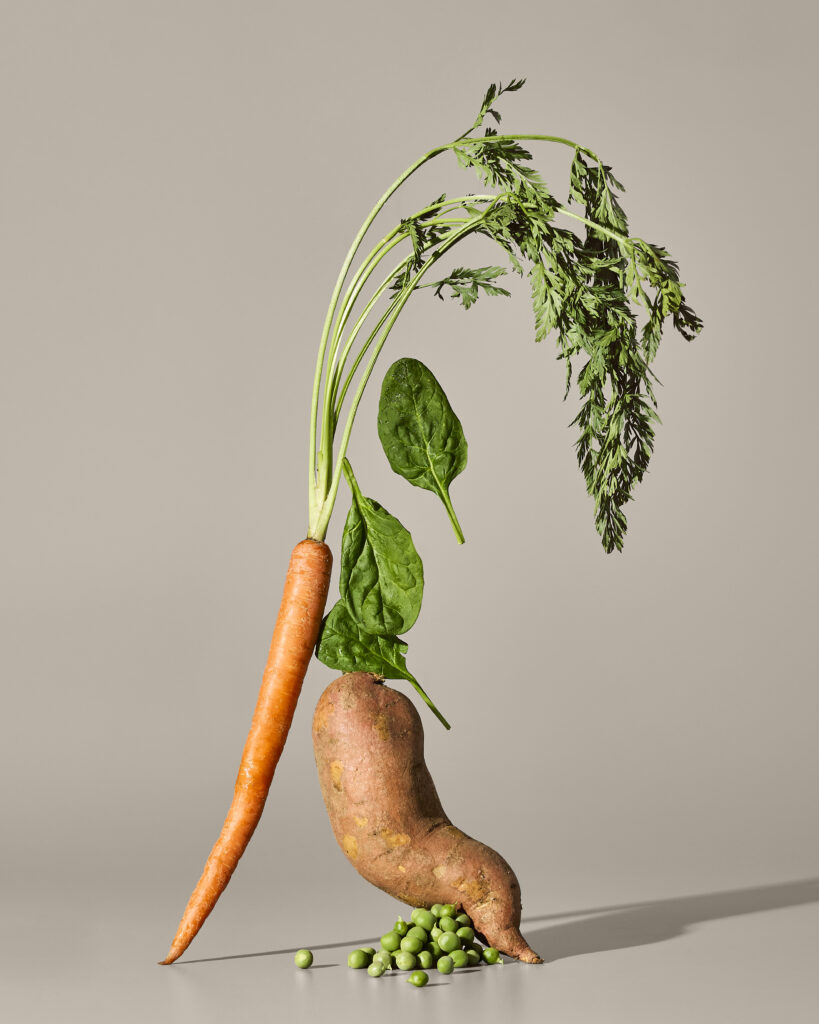
The Power of Fiber
Dietary fiber is crucial for regulating the digestive system. It helps absorb excess water to firm up loose stools and adds bulk to prevent constipation.
- Beneficial Fiber Sources: Pumpkin is a commonly recommended ingredient for digestive health, known for its ability to help regulate stool consistency. Other sources include psyllium husk, sweet potatoes, and carrots [2], [4].
Beneficial Fats for Gut and Overall Health
Healthy fats are a concentrated energy source and are vital for absorbing certain vitamins. Omega-3 fatty acids, in particular, have anti-inflammatory properties that can help support digestive health.
- Healthy Fat Sources: Look for foods containing salmon oil or flaxseed oil to provide a healthy dose of omega-3s [2].
Probiotics and Prebiotics: The Gut’s Best Friends
A healthy gut is teeming with beneficial bacteria, collectively known as the microbiome.
- Probiotics are live, beneficial bacteria that help maintain a healthy balance in the gut, improve digestion, and support immunity [5].
- Prebiotics are types of fiber that act as food for these good bacteria, helping them thrive [1].
Many high-quality dog foods for sensitive stomachs are fortified with both prebiotics and probiotics to support a robust gut microbiome [3].
Ingredients to Avoid for Sensitive Stomachs
Just as important as what you feed your dog is what you don’t feed them. Many common commercial dog food ingredients can trigger digestive upset. Be sure to read labels and steer clear of:
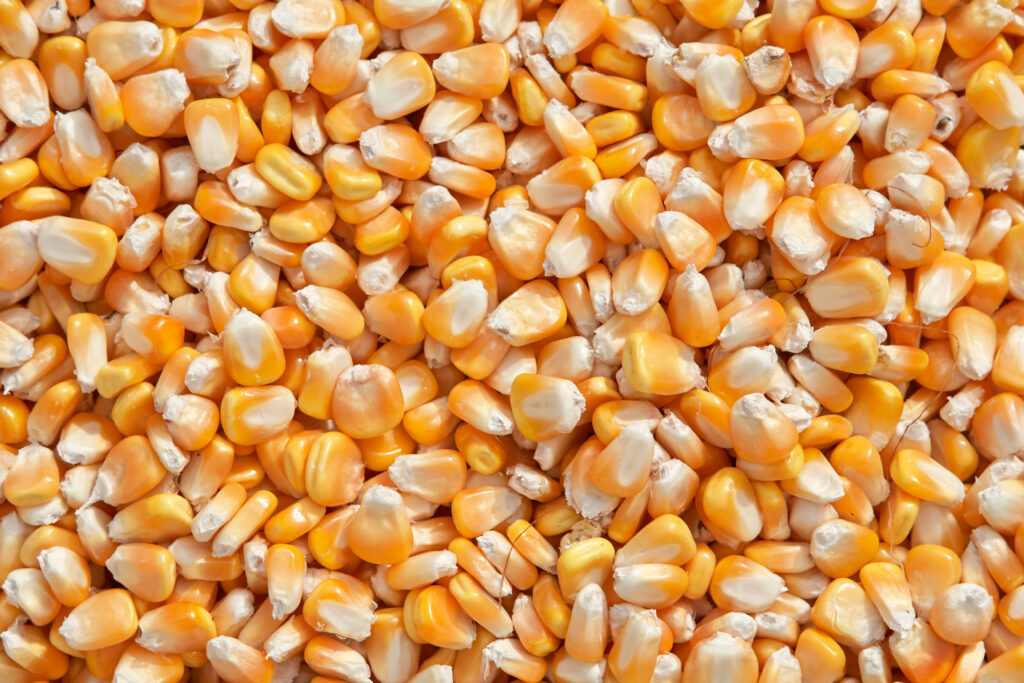
- Artificial Additives: Artificial colors, flavors, and preservatives can irritate the gut [1].
- Fillers: Low-quality fillers like corn, wheat, and soy are common allergens and can be difficult for some dogs to digest [1], [6].
- Meat By-Products: These are lower-quality parts of an animal and can be less digestible than whole, named meats [1].
- Dairy: Many dogs are lactose intolerant, and dairy products can cause gas and diarrhea [1].
- High-Fat Content: While some fat is necessary, excessively rich or greasy foods can trigger pancreatitis or general digestive upset [1].
How Fresh Food Can Help a Sensitive Stomach
For many pups with sensitive systems, switching to a fresh food diet can make a significant difference. Fresh, human-grade recipes are often gentle on the stomach because they are made with whole, recognizable ingredients and are free from the harsh processing, fillers, and artificial additives found in many kibbles.
Companies like Ollie specialize in creating fresh meals that are formulated with veterinary nutritionists and use limited, high-quality ingredients like chicken, turkey, and lamb, combined with fiber-rich vegetables like pumpkin and sweet potatoes. Because fresh food has a higher moisture content, it also helps keep your dog hydrated, which is especially beneficial if they’ve experienced vomiting or diarrhea [4]. By focusing on digestibility and balanced nutrition, these meals help your pup get the most from their food with less digestive strain.
Testimonial: “Our Golden Retriever, Max, struggled with digestive issues for years. We tried so many different kibbles. Switching to Ollie’s fresh chicken recipe was a game-changer. His digestion is regular, and he’s so much happier and more energetic!” – Sarah P., Pup Parent
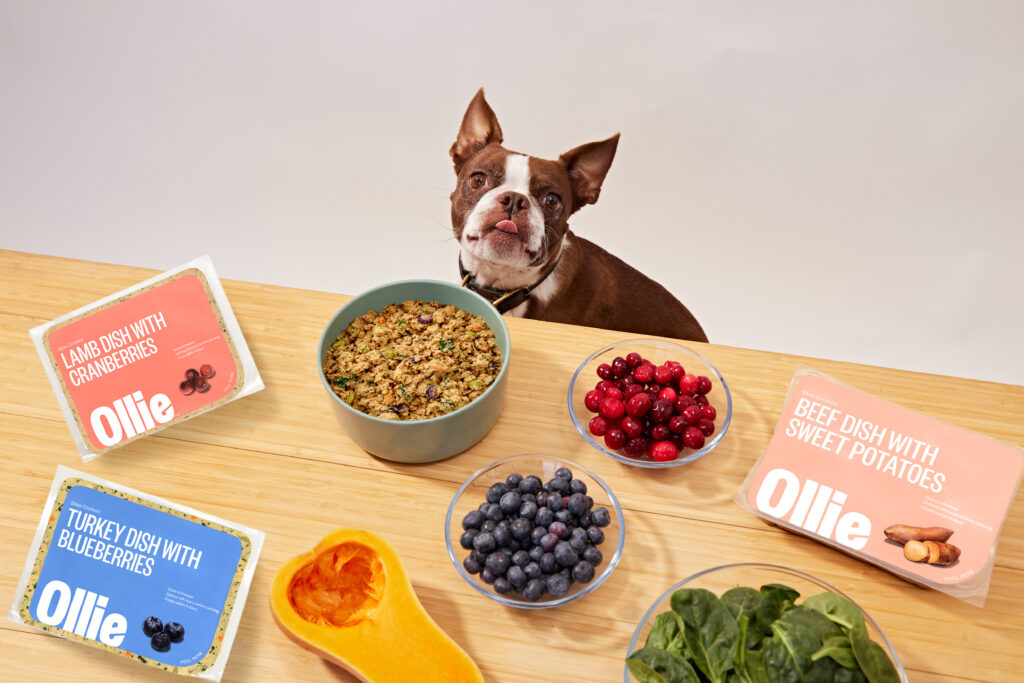
Choosing the Best Dog Food for Your Pup
Finding the right food is a journey, but you are your dog’s best advocate. When choosing a food:
- Read the Label: Look for a short ingredient list with a named, single-source protein at the top.
- Check for Gut-Friendly Additions: Seek out ingredients like pumpkin, sweet potatoes, and prebiotics or probiotics.
- Transition Slowly: When you introduce a new food, do it gradually over 7–10 days by mixing it with the old food to avoid shocking your dog’s system.
Ready to find a meal plan that’s perfect for your dog’s sensitive stomach? Start fresh with Ollie.
Navigating the world of dog food for a sensitive stomach can feel overwhelming, but focusing on simple, high-quality, and digestible ingredients is the key to success. By choosing a diet rich in gentle proteins, beneficial fibers, and healthy fats—and avoiding common irritants—you can provide your pup with the relief they need. A happy gut leads to a happy pup, and a balanced, gentle diet is the foundation for a healthier, more comfortable life.
Frequently Asked Questions (FAQs)
How do I know if my dog has a sensitive stomach? Common signs include chronic gas, loose or watery stools, occasional vomiting, a picky appetite, and audible stomach gurgling. If these symptoms are persistent or severe, it’s important to consult your veterinarian.
What’s the difference between a food allergy and a food intolerance? A food allergy involves an immune system response to an ingredient (usually a protein), which can cause skin issues like itching and hives in addition to digestive upset. A food intolerance is a digestive issue where a dog has trouble breaking down a certain ingredient, leading primarily to gas, bloating, and diarrhea. Both conditions may benefit from a limited ingredient diet.
Is grain-free always better for a sensitive stomach? Not necessarily. The term “grain-free” has become a marketing buzzword, but not all grains are bad. Many dogs with sensitive stomachs do very well with easily digestible grains like oatmeal and brown rice [3]. The key is to avoid common triggers like wheat and corn, which are more often associated with sensitivities [5].
How quickly should I switch my dog to a new food? A slow transition is crucial to prevent further digestive upset. A good rule of thumb is to switch over 7–10 days. Start with 25% new food mixed with 75% old food for a few days, then move to a 50/50 mix, then 75/25, and finally 100% new food.
Citations
[1] https://www.splootvets.com/post/dog-food-sensitive-stomachs
[3] https://www.petmd.com/dog/nutrition/bland-diet-for-dogs
[4] https://www.paolivet.com/health/dog-food-sensitive-stomach/
[5] https://www.dogfoodadvisor.com/best-dog-foods/sensitive-stomach/
[6] https://www.bluebuffalo.com/dry-dog-food/true-solutions/digestive-care/
Tagged As:

The nutrition your dog needs,
the food they want.

Enjoying our articles? Subscribe our Newsletters and get new articles directly to your inbox
You might also like
30 July 2025
6 MINS READ
Fresh Dog Food for Picky Eaters: A Tasty Solution
Feeding a picky eater can feel like an unsolvable riddle. One day your dog is happily chowing down, and the next, they turn their nose up at the exact same food. If you’ve found yourself trying …
by Ollie Pets
30 July 2025
6 MINS READ
Top Nutrition Tips for Dogs with Digestive Issues
Watching your dog struggle with an upset stomach, diarrhea, or gas is difficult for any pet parent. Digestive issues are common, but the good news is that the right nutrition can make a world of d…
by Ollie Pets
30 July 2025
8 MINS READ
How Highly Digestible Food Can Benefit Your Dog’s Health
Effective digestion isn’t just about breaking down food; it’s about how efficiently your dog can absorb and use the nutrients from their meals. This is where the concept of digestibility becomes c…
by Ollie Pets
